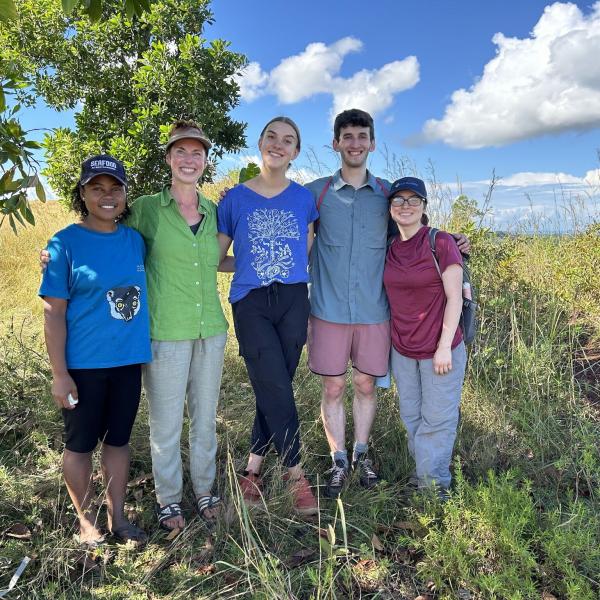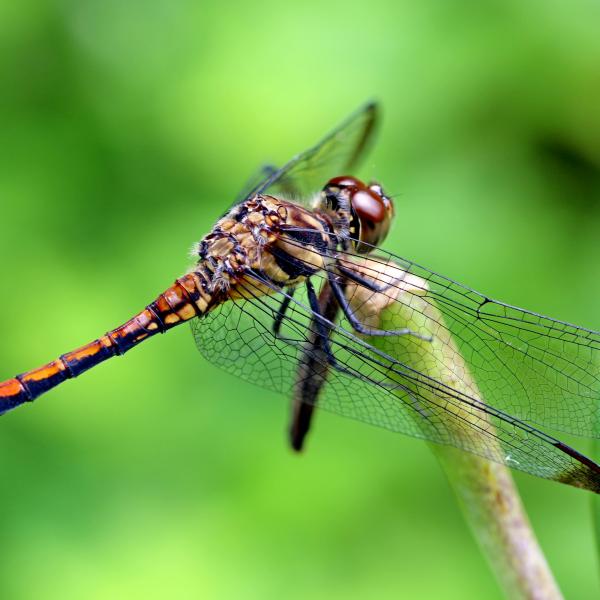A new initiative provides support for scholarships, fellowships, and student experiences.
Emily Gerber, AB ’22, says the Danforth Scholars Program financially enabled her to attend WashU and encouraged her to take risks that led to her greatest experiences as an undergraduate. The scholarships, which provide full and partial tuition, are awarded to entering students who personify high ideals and whose lives show integrity, selflessness, and dedication to scholarship, leadership, and the community.
The financial support was of course vital to Gerber’s success, but she says the opportunities provided by the Danforth Scholars community also made her feel like she belonged, encouraged her to try new things, and allowed her to explore and discover new passions. The program gave her a supportive community of peers and mentors, several opportunities for civic engagement and service learning, and access to a weekly seminar covering topics for life as a college student and beyond. It was the encouragement of her Danforth network that prompted her to apply for student leadership positions that focused on welcoming and supporting first-year students.
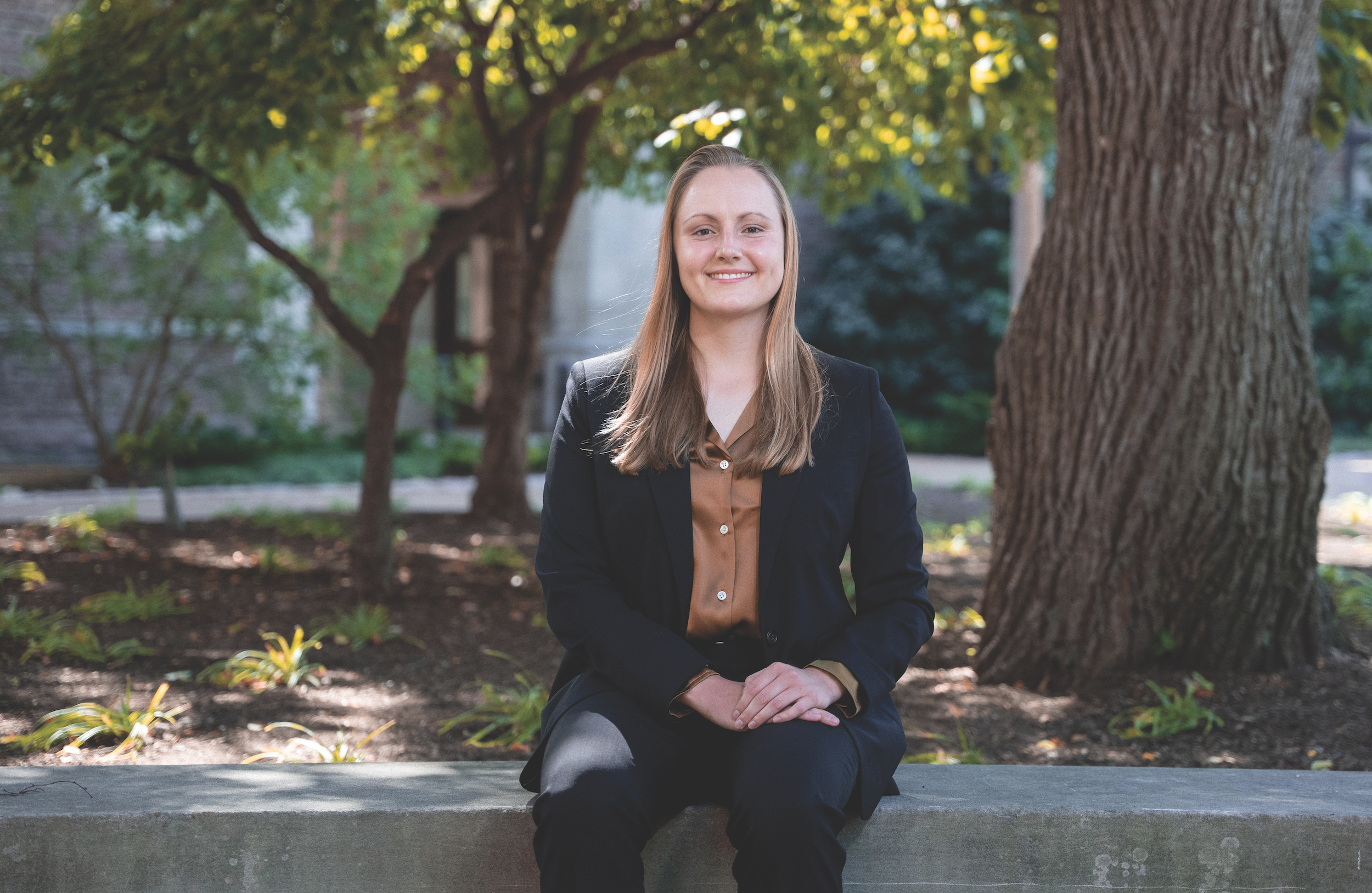
“I was always interested in being a part of something bigger than myself,” she said. “This area of higher education seemed like a perfect way to both mentor students and grow as a professional myself.” After graduation, Gerber applied for a position in WashU’s Student Transitions & Family Programs. “I want to help students feel comfortable taking risks that will help them find themselves, the way people helped me find myself.”
On October 6, Chancellor Andrew Martin announced the launch of Make Way: Our Student Initiative. In addition to garnering vital support for scholarships and fellowships, the initiative aims to provide support for students outside the classroom. Emily Gerber’s story demonstrates that a sense of belonging and access to opportunities are just as important as financial support. Each student should be able to experience all that WashU has to offer — beyond the world-class education offered in their coursework. Many of the most memorable — and formative — experiences happen outside the classroom, and creating a best-in-class experience is how Washington University distinguishes itself and differentiates our students upon graduation. These experiences have been making a difference in the lives of WashU students for decades.
Eye-Opening Travel
Seth Eisner, AB ’92, was an early winner of the Bemis Scholarship for Undergraduate Research in Europe. As a history major, he used the award to visit archives in Paris and Rouen, France. But he says it was the experience outside of his coursework that had the greatest impact on him.
“It was the first time I had left the country,” he said. “The experience of having to navigate an unfamiliar place where you don’t speak the language is unparalleled.” Eisner believes more undergraduate students should have the opportunity to travel abroad, and he gives back to WashU to ensure that more can. He says traveling abroad on his own built his confidence in risk-taking situations. “It provides an opportunity to practice getting out of your comfort zone and lets you know that you are capable of taking on the unknown.” For Eisner, the trip expanded his willingness to pursue things simply from a place of curiosity. He spent the first part of his post-college career following his curiosity into different educational opportunities and positions. He eventually landed at Microsoft, where he has been now for 21 years, currently as the CFO for product finance.
Learning by Doing
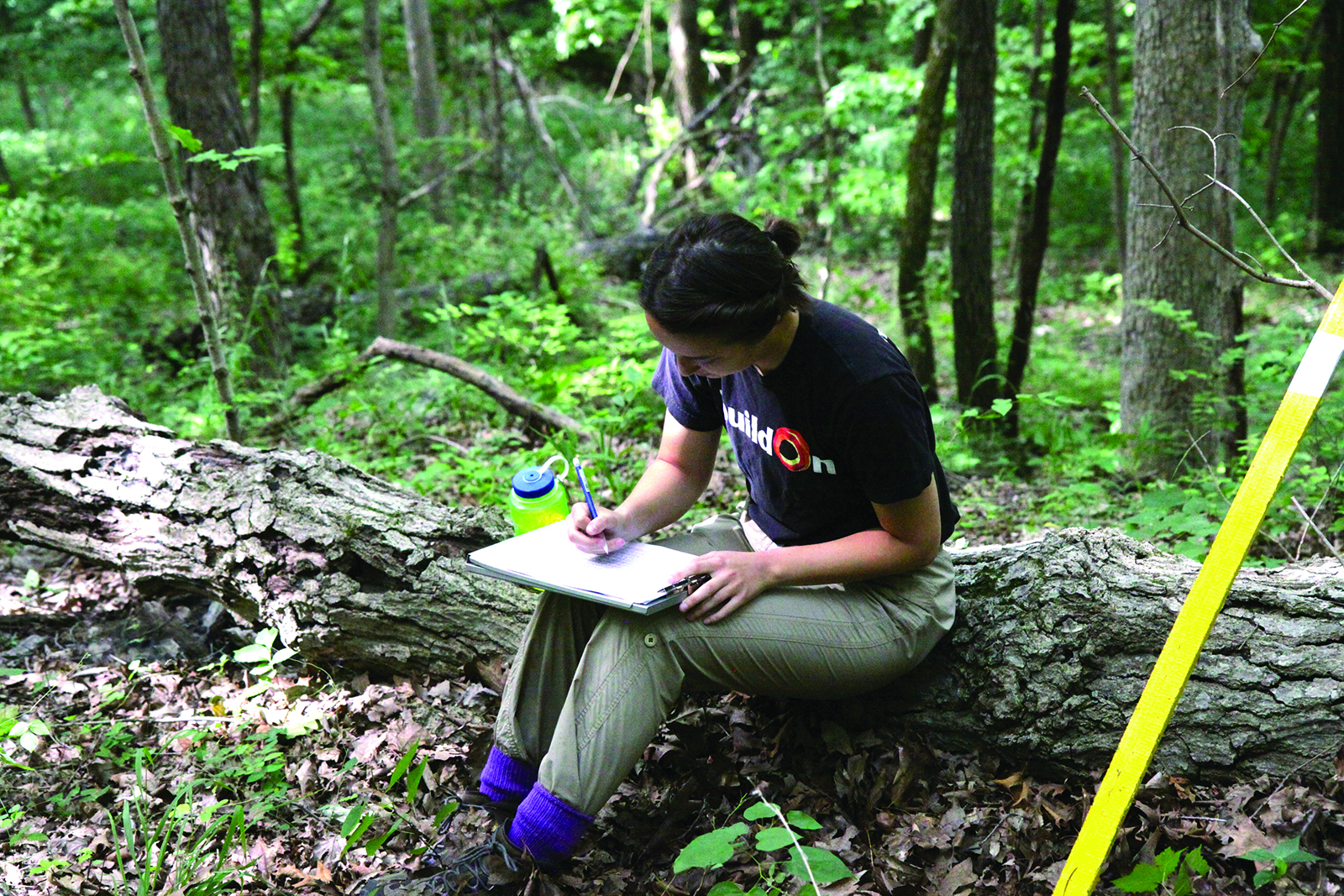
As an undergraduate, Emily Dewald-Wang, AB ’19, spent many days in the Tyson Forest Dynamics Plot, a 25-hectare oak-hickory forest. She was part of a group working to understand how prescribed burns and natural enemies shape the structure and composition of tree communities. Working in the field of ecology — and in the literal field — left a lasting impression. “The experience of working on a large field crew, in a small lab, and on my own independent research project at Tyson were by far the best parts of my undergrad career,” she said. The mentorship she received and the type of work were influential in her choice to study ecology in grad school. And it’s an experience she wouldn’t have had without the financial support from the Lennette Field Research Award.
After graduation, Dewald-Wang was accepted to UC Berkeley’s Department of Integrative Biology’s highly selective graduate program. She initially worked on crop- associated microbial pathogens and symbionts but has since transitioned back to forests and wild trees. She’s studying coastal redwoods and hopes to incorporate an angle on wildfire and conservation into her research.
Meaningful Connection
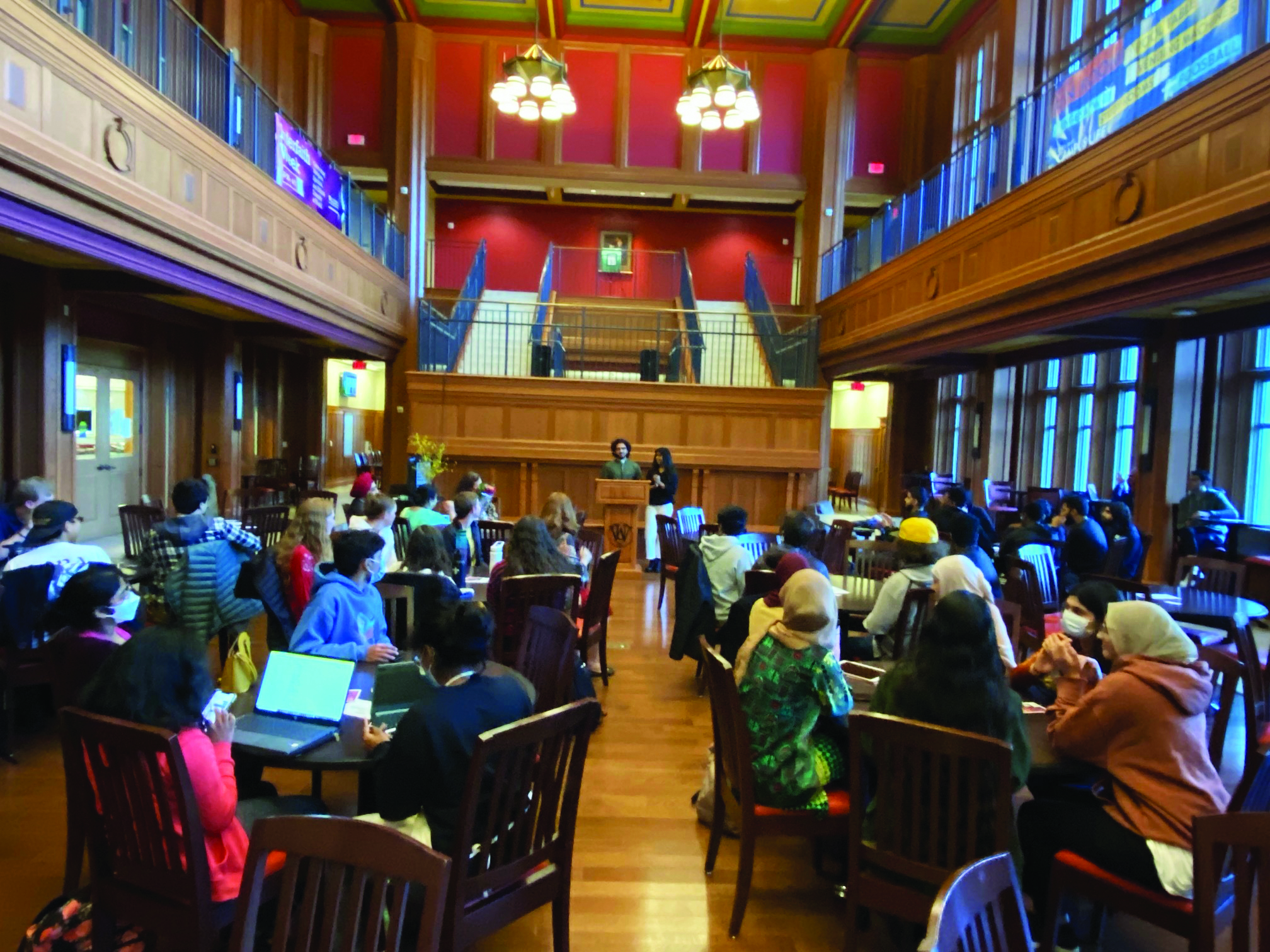
Deborah E. Meer, AB ’95, organized an Interfaith Progressive Dinner in November 1993. She says it was the highlight of her WashU undergraduate experience. The event united a group of student leaders for an unprecedented opportunity to share their worldviews, with the singular goal of promoting interfaith relations on campus. Sunni and Shia Islam, Sikh, Christian, Jewish, Bahá’í, and agnostic students presented their religious views.
“It was meaningful to me because I felt kindred with these students: Just like me, they wanted to learn about people different from themselves, with compassion and curiosity,” Meer said. “And they felt safe in the environment that WashU readily provided.” The experience had such an impact on Meer that she set up an endowment for interfaith initiatives to provide similar opportunities for current and future WashU students.
“I see what’s happening on campuses around the world, where students are harassed because of their religious beliefs. I feel an obligation to do something tangible in response. And WashU students are natural leaders. There is no university or student body better prepared to actualize the values of compassion and dignity.”
Share your story!
Did a WashU experience outside the classroom shape your future? Perhaps an internship changed the course of your career or you learned a critical skill through a student organization. We want to know about it! Share your story and you may be featured in Arts & Sciences’ digital outlets or social channels.
